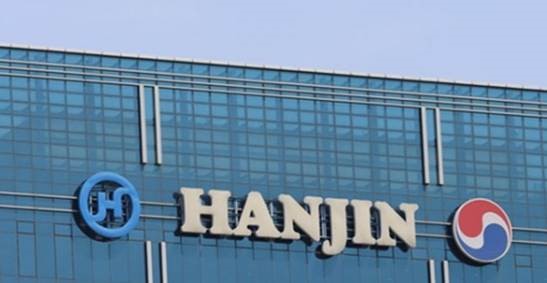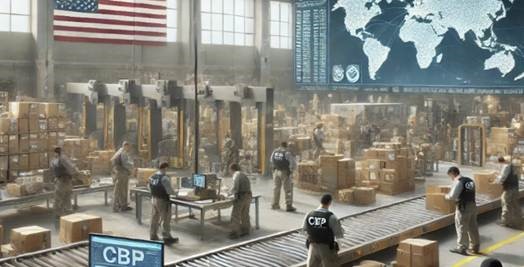EXTRANS GLOBAL - Air Freight News - Week 08 2025
Air Cargo General
1) Air Premia achieves its first net profit since its establishment - stable cargo business through Valicargo also creates synergy.

- South Korea's representative hybrid airline, Air Premia (CEO Kim Jae-hyun, Yoo Myung-seob), achieved its first annual net profit since its establishment in 2024, recording the highest revenue and operating profit in history.
- Revenue increased by 31.1% compared to 375.1 billion won in 2023, achieving an all-time high, while operating profit rose by 119.9% to 40.9 billion won from 18.6 billion won during the same period, marking a second consecutive year of profit with an operating profit margin of 8.3%.
- Notably, despite significant foreign exchange losses due to rapid currency fluctuations, the airline recorded a net profit of 5.9 billion won for the first time since its establishment, achieving the profit target set last year.
- Air Premia attributes its record performance to factors such as a profitable long-haul passenger business, stable cargo operations through Valicargo, and efficient distribution of fixed costs along with ancillary business operations, establishing a robust revenue structure for a hybrid airline.
- Specifically, Air Premia transported over 428,600 passengers, accounting for 56% of total passengers on profitable long-haul routes such as those to North America, with long-haul passenger revenue making up 80% of total revenue, contributing to its record performance.
- Additionally, the cargo business utilizing Valicargo was driven by demand from Chinese e-commerce and secured a stable global supply chain, accounting for 13.2% of total revenue, further enhancing the record results.
- Air Premia has firmly established a stable hybrid revenue structure that integrates passenger, cargo, and ancillary businesses, efficiently managing cost increases due to high fuel prices and rapid currency fluctuations through effective distribution of fixed costs with a single aircraft type.
- Meanwhile, Air Premia plans to achieve over 750 billion won in revenue this year through additional aircraft acquisitions and diversification of routes, aiming to become a global airline.
2) T'way Air management rights dispute resolved - Yerimdang sells its shares in Daemyung Sono and exits.

- The dispute between the largest shareholder and the second-largest shareholder regarding the management rights of T'way Air is coming to an end. The largest shareholder, Yerimdang, has decided to sell its shares to the second-largest shareholder, Daemyung Sonogroup, which will result in Daemyung Sono acquiring the management rights of T'way Air.
- Yerimdang and Daemyung Sono have resolved their conflict over the management rights of T'way Air and have entered into dramatic negotiations. As a result, Daemyung Sono has confirmed that it has withdrawn all requests for a provisional injunction regarding the agenda for the regular shareholders' meeting, as well as requests for access to and copying of the shareholder register.
- Until last year, Daemyung Sono had been negotiating with Yerimdang to acquire shares in T'way Air but ultimately could not reach an agreement. Last month, they initiated the management rights dispute by sending a demand for management improvement to the current management. Daemyung Sono proposed to appoint nine members, including Chairman Seo Jun-hyuk, to T'way Air's board, and both sides were planning to engage in a "vote contest" at the regular shareholders' meeting scheduled for next month.
- Yerimdang had been considering countermeasures, including hiring a law firm until recently, but ultimately decided to sell its shares. It is suggested that the pressure from Daemyung Sono's offensive may have influenced this decision. Given the significant investment required in the aviation industry, it was deemed reasonable to consider a sale once a buyer emerged.
- As both parties enter negotiations, Daemyung Sono is expected to successfully appoint the nine directors to the board at the regular shareholders' meeting next month.
- Currently, Daemyung Sono holds about 26.77% of T'way Air shares, which puts it 3 percentage points behind the largest shareholders, Yerimdang and T'way Holdings, who hold 30.06%.
3) Han Jin Paving the Way to Address Supply Chain Crisis

- s global economic uncertainties increase, the responses of the government and businesses have become critically important. To sustain the export growth of K-products, domestic logistics companies and related organizations are moving quickly.
- On the 4th, a launch ceremony for the ‘K-Logistics Task Force’ was held under the Ministry of Oceans and Fisheries, gathering representatives from major domestic logistics companies to discuss responses to uncertainties in the global logistics market and collaborative supply chain building.
- Minister of Oceans and Fisheries Kang Do-hyun emphasized, “Given the high volatility of global logistics supply chains this year, close cooperation between the public and private sectors is essential.”
- Hanjin is expanding e-commerce exports to Japan in collaboration with the reverse direct purchase platform Qoo10 Japan.
- Since the launch of the task force, K-logistics companies have ramped up their responses to the supply chain crisis. Hanjin is accelerating e-commerce exports to Japan, announcing a partnership with Qoo10 Japan, one of Japan's largest e-commerce platforms, to support domestic sellers in entering overseas markets.
- Hanjin has been operating various logistics services for exports to Japan, but this collaboration focuses on providing effective support for e-commerce sellers' business operations based on Hanjin's new digital platform.
- Hanjin is particularly focused on lowering barriers for promising small sellers entering overseas markets. They support even a single product shipment with pick-up services, simplifying the shipping process that smaller sellers often find burdensome in terms of manpower and time. Additionally, by utilizing Hanjin's optimized logistics network, they offer reasonable shipping rates for lightweight products (e.g., 100g, 300g) and provide services and pricing systems tailored to the growth stages of sellers.
- Hanjin is expanding logistics infrastructure not only in Japan but also in North America. In June of last year, they expanded their LA fulfillment center by 50% and began full-scale operations.
- Hanjin is also accelerating its global network expansion to diversify its supply chain. Last year, it expanded from 37 locations in 18 countries to 42 locations in 22 countries.
- In Europe, after establishing a corporation in Prague, Czech Republic, they perform air cargo land transportation based on key hubs in Vienna, Frankfurt, and Oslo. Last year, they pursued new locations in Budapest, Hungary, and established a hub in Morocco to create synergy with existing European locations. In August of last year, they established a corporation in Singapore and began strengthening their ASEAN network, focusing on building a logistics network in ASEAN through Cambodia, Vietnam, Indonesia, and Thailand. The new Singaporean branch is expected to serve as a strategic hub for the ASEAN network, creating synergy with existing branches.
- Hanjin plans to continue expanding its global presence this year. A Hanjin representative stated, “We are in the process of actualizing our long-standing global expansion plans,” adding, “We plan to closely cooperate with government agencies and various domestic companies that are considering diversifying their global supply chains based on our enhanced overseas logistics network.”
4) U.S. 'Diminimus' Repeal Expected to Take Longer Than Anticipated - Significant Time Required for CBP System Development

- Although the U.S. government plans to repeal the "de minimis" exemption for imports from China, it is indicated that significant time will be required before the actual removal of the duty-free threshold, as U.S. Customs and Border Protection (CBP) needs to enhance its systems and procedures.
- President Donald Trump recently announced a postponement of the termination of the $800 de minimis threshold for imports from China until April 1, acknowledging the need for time for federal agencies to prepare.
- However, market experts point out that the April 1 reinstatement declared by the U.S. administration may be challenging because the CBP is not ready to handle millions of additional inspections per day, and the necessary system upgrades will require even more time.
- In fact, local logistics industry stakeholders in the U.S. note that no country worldwide has the capacity to inspect over one billion packages annually along with documentation, suggesting that the administration's measures to counter China will take a considerable amount of time and cost to be realized.
- Some experts even argue that even if all preparations are completed and the measures are implemented, the supply chain will not change immediately. They point out that the administration's tariff applications and customs regulations are subject to change based on presidential executive orders. Companies are also not yet adjusting their supply chains, which could lead to short-term costs being shared between shippers and U.S. importers.
- Ultimately, U.S. government tariff policies are likely to change based on the president's political rhetoric. Therefore, while e-commerce may be a target in the process of strengthening U.S. protectionism, the broader goal appears to be policies aimed at bringing major manufacturing sectors, such as automotive and semiconductors, back to domestic production.

top



